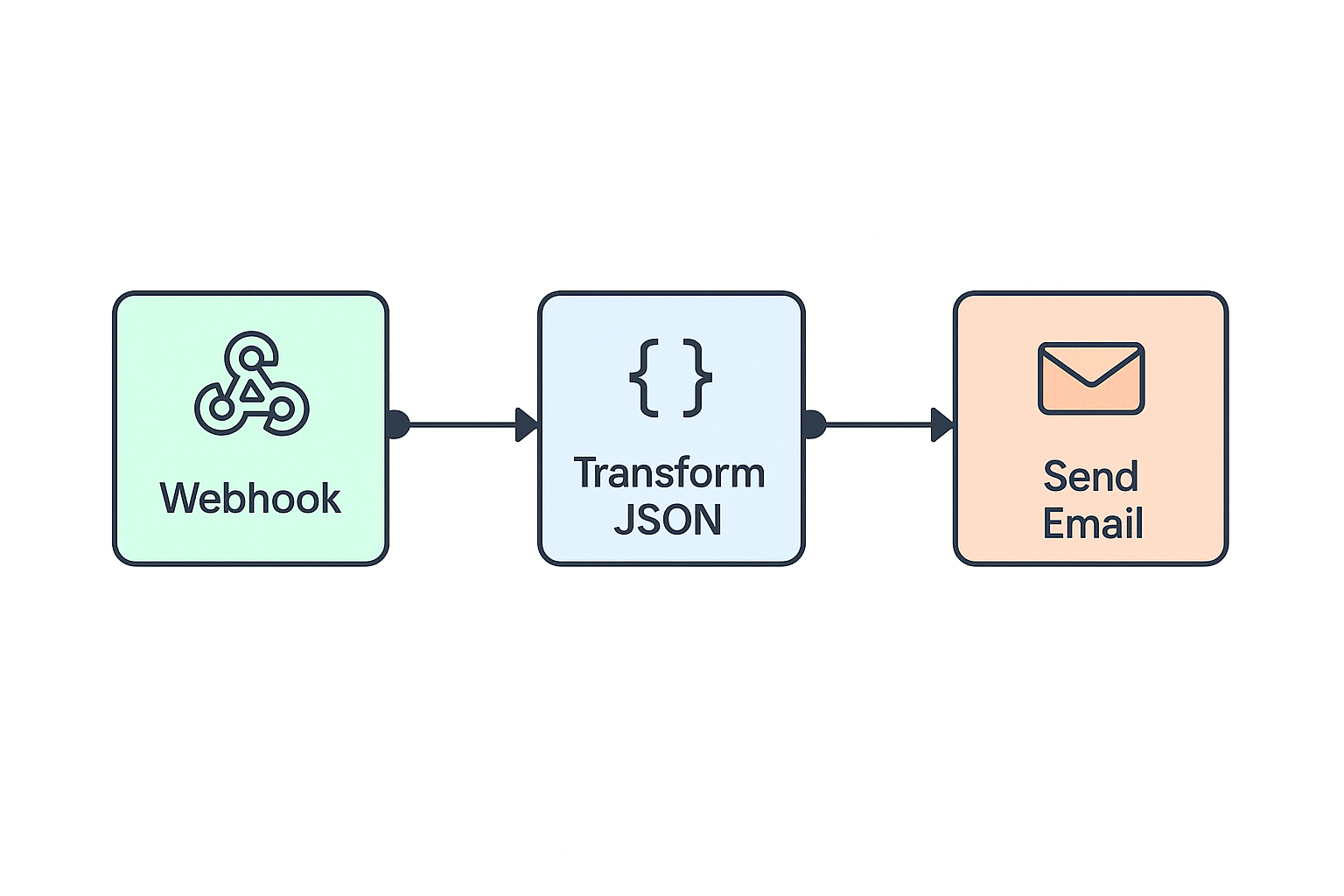Micro-SaaS automation philosophy: maximum leverage per hour
For solo founders and tiny SaaS teams, every hour must multiply output. The philosophy:
- Automate repeatable tasks → never answer the same support question twice.
- Leverage low-cost tools → Zapier, Make, n8n, or direct APIs.
- Focus on ROI → if automation saves more than it costs in hours or tools, it’s worth it.
Automation is the force multiplier that lets a 1–3 person team operate like a 10-person one.
Customer onboarding automation case study
A frictionless onboarding flow can double trial-to-paid conversions without adding headcount.
Email sequences and progressive disclosure
- Tools: Customer.io, ActiveCampaign, or Postmark + Zapier.
- Workflow:
- New signup triggers automated welcome email.
- Progressive drip sequence: features unlocked gradually (Day 1 basics, Day 3 integrations, Day 7 advanced use case).
- Conditional branching: if user hasn’t logged in → send “nudges” with specific guidance.
Impact: A micro-SaaS CRM founder automated onboarding and cut churn in half, adding $2k MRR within 2 months.
Trial-to-paid conversion optimization
- Auto-send trial ending reminders.
- Offer discount codes triggered if user engages heavily but hasn’t upgraded.
- Sync trial events → Stripe → CRM for tracking.
Result: 20–30% increase in paid conversions with no additional sales staff.
Support automation: from reactive to proactive
Chatbots that actually help users
- Use Intercom bots, Crisp automations, or GPT-based assistants.
- Limit bots to FAQs + routing; escalate complex issues to human support.
- Example: A solo founder added a bot that answered 40% of queries → cut personal support load from 2h/day to 30 min.
Knowledge base automation and content suggestions
- Tools: HelpDocs, Document360, or Notion + API.
- Auto-suggest KB articles in chat before ticket submission.
- Track which queries lead to unresolved tickets → auto-create draft KB articles for review.
Marketing automation for micro-SaaS constraints
Content distribution across channels
- Workflow: Publish blog → auto-distribute via Buffer or Zapier to Twitter, LinkedIn, and newsletter.
- Repurpose: Blog → video (Lumen5) → social clips.
- Saves hours per week.
Lead scoring and qualification automation
- Use Clearbit + HubSpot workflows (or open-source alternatives).
- Assign lead scores automatically based on email domain, activity, and trial engagement.
- Solo founder case: automated lead scoring replaced a part-time SDR, saving ~$1.5k/month.
Operations automation: billing, reporting, compliance
- Billing: Stripe + webhooks → auto-generate invoices in QuickBooks.
- Reporting: Metabase or Google Data Studio auto-updates metrics dashboards.
- Compliance: Auto-check GDPR/CCPA consent logs with scheduled scripts.
Automation = less time on paperwork, more time coding.
Product development automation: feedback loops and feature flagging
- Auto-collect feedback via in-app widgets (Canny, Userflow).
- Pipe feedback → Notion/Trello board via Zapier.
- Use feature flag tools (Flagsmith, LaunchDarkly OSS alternatives) to roll out features gradually without manual deploy cycles.
Result: Faster iteration cycles without breaking production.
Monitoring and alerting: business metrics and technical health
- Technical: UptimeRobot for app health → Slack alerts.
- Business: Stripe MRR changes trigger Slack pings.
- User behavior: Mixpanel funnels auto-send alerts if conversion drops >20%.
One founder described this as “hiring a part-time COO that never sleeps.”
ROI measurement: time saved vs automation investment
Automation ROI = (Hours saved × hourly value) – tool costs.
Example calculation:
- Hours saved: 40/month (support, reporting, onboarding).
- Hourly founder value: $75.
- Gross savings: $3,000.
- Tool cost: $200/month.
- Net ROI: $2,800/month.
Rule of thumb: If automation pays for itself within 30 days, keep it.
Conclusion
Scaling micro-SaaS isn’t about hiring—it’s about systemizing.
- Automate onboarding → boost conversions.
- Automate support → cut workload.
- Automate marketing → extend reach without burning out.
- Automate ops and monitoring → reduce stress.
For solo founders and tiny teams, automation is the only way to scale sustainably.
FAQs
What’s the first process to automate in micro-SaaS?
Customer onboarding emails → highest ROI, immediate impact on revenue.
Are no-code tools reliable for critical automations?
Yes for non-core workflows (support, marketing). Use APIs or self-hosted n8n for mission-critical flows.
How do I measure automation ROI?
Track hours saved vs tool costs. If you save at least 5–10× tool cost, it’s justified.

